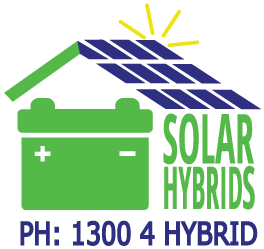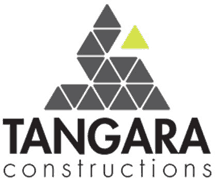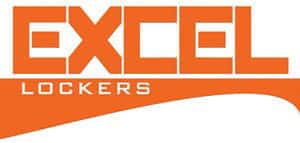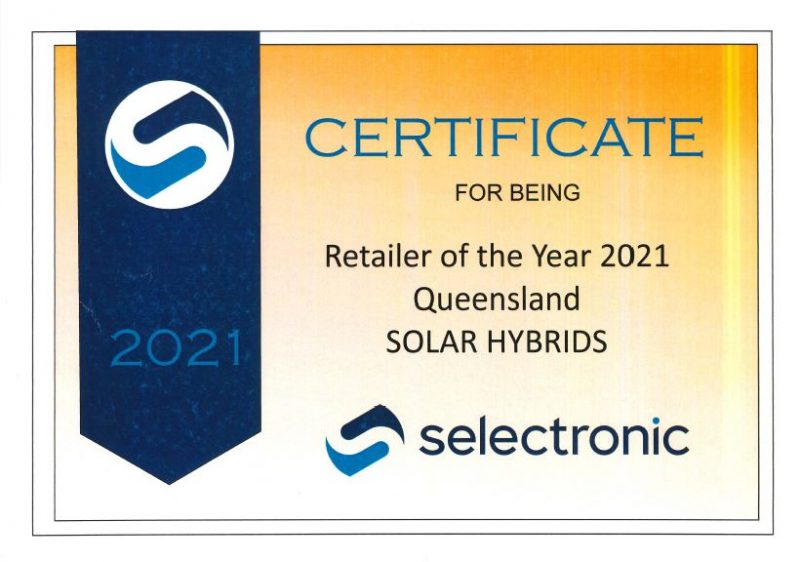What is a Solar Hybrid system?
A Solar Hybrid system, also known as a Hybrid Solar system, is a modern Solar Power system that is connected to an electricity grid as well as a battery bank. It therefore has the capability to produce energy from the sun and store some or all of that energy for use at a later period, typically when there is no sunshine. This enables the system owner to maximise the use of the available solar energy from the solar panels, rather exporting unused solar energy to the grid (often for very little financial compensation). It can also be used for other useful features such demand peak lopping, grid support, and battery backup power during a black out (not all systems can provide these functions however). The system combines several elements (Solar panels, a battery or batteries, and the grid) to produce and store energy to power your home or business. Sophisticated solar hybrid systems are fully programmable and have an intelligent management system that balances battery levels, power usage and grid back up without any input from the system owner. For further information see our Solar Hybrid page.
What is a Hybrid Solar system?
A Hybrid Solar system, also known as a Solar Hybrid system, is a modern Solar Power system that is connected to an electricity grid as well as a battery bank. It therefore has the capability to produce energy from the sun and store some or all of that energy for use at a later period, typically when there is no sunshine. This enables the system owner to maximise the use of the available solar energy from the solar panels, rather exporting unused solar energy to the grid (often for very little financial compensation). It can also be used for other useful features such demand peak lopping, grid support, and battery backup power during a black out (not all systems can provide these functions however). The system combines several elements (Solar panels, a battery or batteries, and the grid) to produce and store energy to power your home or business. Sophisticated hybrid solar systems are fully programmable and have an intelligent management system that balances battery levels, power usage and grid back up without any input from the system owner. For further information see our Hybrid Solar page.
What is an off-grid solar system?
An off-grid solar system, also known as a standalone solar power system, is a solar energy system that is completely separated from the electricity grid. Apart from solar panels, off-grid solar systems usually incorporate additional means of energy generation in the form of a diesel generator and also sometimes a wind generator. Before the advent of grid connected solar power systems, standalone solar systems were commonly referred to as solar hybrid systems, due to them having multiple sources of energy supply. A battery bank is almost always included in an off-grid solar system, in order to store and use excess solar energy for loads that are needed when there is insufficient sunlight. For further information see our Off-grid Solar page.
What is a commercial solar system?
A commercial solar power system usually refers to a large grid connected solar system which differs largely from that of a residential solar system, in terms of size, complexity and functionality. Unlike most small residential systems, additional strict measures for protection of the grid is a mandatory requirement. This usually entails additional export control hardware to automatically ramp down rapidly the instantaneous solar power production to match the fluctuating loads of the business. This is often necessary in order to prevent sudden and excessive solar energy exporting to the grid, which may otherwise cause grid voltage instability, a grid phenomenon refereed to by network engineers as ‘flicker’. For commercial solar systems greater than 30 kW, even more additional and complex hardware is required in the form of what is known as Level 2 Network Protection. This incorporates the addition of a Programmable Logic Controller (PLC), and contactor who’s role is to monitor grid fluctuations & instability and solar PV production, and to automatically disconnect the solar system from the grid in the event of any critical hardware failure within the system. Systems over 30 kW are usually mandated to be designed and signed off by a chartered electrical engineer (RPEQ in Queensland). For further information see our Commercial Solar Systems page.
What is the difference between a Solar Hybrid System and an Off-grid system?
A Solar Hybrid System is connected to the electricity grid and uses energy from the grid to support the loads and charge the batteries, particularly during periods of inclement weather when the available solar energy is limited. Some solar hybrid systems are able to provide power to some or all of the loads during a grid outage (black-out). An off-grid solar system has no grid connection however, so a diesel generator is usually installed to serve the above purposes. System components needed for an off-grid system are therefore more comprehensive and will generally cost more than a solar hybrid system, because there is no reliance on grid power. For further information see our Off grid solar page.
How does a Solar Hybrid System work?
A Solar Hybrid system works similar to a regular grid connected solar system, however, with the addition of the battery, you have more control over what you can do with your available energy. For example, as you make energy from the solar panels, the solar hybrid system allows you to either store the energy in the battery, use the energy for your appliances, feed the energy into the grid, or a mixture of all of the above, depending on how you wish to program the system, and the capabilities of that particular system. With some brands of solar hybrid technologies, the possibilities are endless. For further information watch the videos on our Solar Hybrid Conversions page.
What are the components of a Solar Hybrid Power system?
A Solar Hybrid Power systems comprises the following main components: Solar panels – to convert energy from the sun into DC electricity. At least one solar inverter – to convert the DC electricity from the solar panels into AC electricity suitable for your appliances and the grid. A battery or battery bank – to store energy for later use. An inverter charger – to supply power to your loads from the battery, and to charge the battery from either the solar energy, the grid, or a mixture of both (some inverter chargers can also provide the function of a solar inverter as well). For further information watch the videos on our Solar Hybrid Conversions page.
Can I convert my existing standard grid connected system into a solar hybrid solution?
Yes, and this is something that we specialise in. No matter what type of inverter you currently have, we can utilise all of the components of your existing system and convert it into a solar hybrid system of your liking by adding a battery bank and other additional componentry. For further information and examples of some of our solar hybrid conversions, see our Solar Hybrid Conversions page.
Will I have power during a black out with my hybrid solar system?
Only some hybrid solar systems are designed to operate during a black out (grid outage). Most all-in-one box systems generally have too small a battery in order to power a premises during a black-out, however some of these types of systems have a limited power output that can be applied to small loads during a black-out (lights and small fridge for eg) for a small period of time. Modular systems however, allow the system designer to scale up and add just about as much solar and battery capacity as desired, so yes, we are able to custom design a solar hybrid system to fully operate all of your loads during a grid outage. See our Inverter chargers page for solar hybrid systems that can operate during a grid outage.
Can a Solar Hybrid system completely power my premises?
Yes, this can be achieved if your system components have been sized correctly for this purpose. However, most all-in-one box systems generally have too small a battery and inverter to completely power a premises, so some grid power is required to make up the shortfall. Modular systems however, allow the system designer to scale up and add just about as much solar, inverter and battery capacity as desired, so yes, we are able to custom design a solar hybrid system to fully operate all of your loads, even during a grid outage. See our Inverter chargers page for modular solar hybrid systems that can operate all of your loads, even during a grid outage.
Can I disconnect from the grid altogether?
Yes, and we have helped some of our clients go off grid permanently. Much consideration is needed here however. Although many of our solar hybrid systems we design are capable of completely avoiding grid power during optimum weather conditions, we all know that mother nature can sometimes give us 10 or more consecutive rainy or cloudy days. Under such conditions, you will need either the grid or a diesel generator to top up the batteries and continue supplying power to your loads. A completely off-grid system without a diesel generator is currently impractical, and if you live in suburbia, your neighbours will not be too impressed with your noisy smelly generator running every time there are long periods of rain. If you live on acreage however, then this may not be a problem – contact us for a quote today. From an economical viewpoint however, the cost of purchasing and running a diesel generator is far more expensive than simply continuing to pay for the grid connection that you may only use from time to time – but that is quickly changing however!
How long is the payback for a solar hybrid system?
Currently the payback period for a solar hybrid system is quite long compared to that of a simple grid connected solar system without energy storage. Often (but not always), the warranted battery life of the system is unfortunately shorter than the payback period based on the pure economics of storing and using the excess solar energy at a savings of today’s kWh electricity price, rather than selling that excess energy to the grid for a miniscule amount. But electricity prices are forever increasing, making it difficult to accurately predict the return on investment for a solar hybrid system past its first couple of years of operation. Nonetheless, apart from the simple economics above, further savings may result from food that may have otherwise gone to waste from the in-operation of your fridge / freezer during any prolonged grid outages, or lost revenue from not being able to perform your work during a grid outage. There is a myriad of potential examples of additional savings and benefits a solar hybrid system may bring, but one thing for sure – it is very hard to put a price on having a cold beer and watching TV whilst your neighbours are frantically searching for candles!










